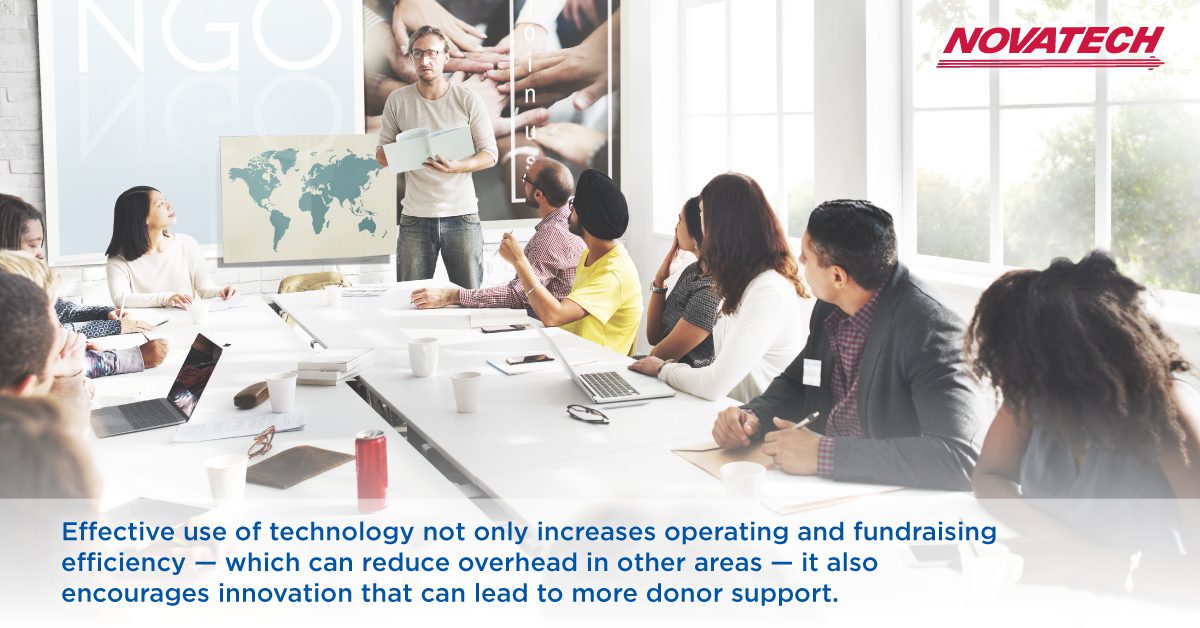Can Technology Transform the Nonprofit Sector?
3 min read

Much has been written about how technology can help nonprofit entities achieve their missions. Yet, leadership in many nonprofits balks at the idea of expending precious resources on technology. This is unfortunate, because effective use of technology not only increases operating and fundraising efficiency — which can reduce overhead in other areas — it also encourages innovation that can lead to more donor support.
The Great Divide
According to a survey conducted by media and entertainment firm OZY and financial powerhouse JPMorgan Chase, the challenge for nonprofits isn’t necessarily fear of expense. Rather, lack of planning, organization, and technological sophistication are often the primary stumbling blocks. Per a 2018 survey, only 11 percent of nonprofit personnel view their organization’s digital approach as “highly effective.”
Chase stepped into this gap and spearheaded a program called Force for Good, whereby Chase engineers volunteer for a few hours each week to help nonprofits build out their technology capabilities. Areas that the Chase volunteers focused on included app development, website improvements, and data analytics — all areas where technology can drive significant value in fundraising and program execution.
This is a great way to enrich technical capacity for nonprofits, and a concept that Novatech supports wholeheartedly, but the approach cannot be restricted to hoping global corporations donate manpower. Rather, nonprofits need a dedicated blueprint for how they can leverage technology — and use success metrics to illustrate for stakeholders the value of their efforts.
Such a blueprint doesn’t arise organically through gadget chasing. It requires leadership to strategically identify digital or hybrid solutions to empower volunteers, workers, management, and partners to promote the entity’s mission. As part of that effort, they must also cultivate an ethos of innovation that embraces digital transformation and service delivery.
Following are three ways in which technology is benefitting nonprofits:
Analyze and Visualize Data
Nonprofits often have huge volumes of data they have collected over time, but much of it may be paper-based and not digitized. If they can identify a partner to help them import and organize that data – and store it on secure servers – they can enhance operations ranging from fundraising to community outreach.
Streamline Processes Without Adding Overhead
Over the past half-century, technology has helped level the playing field for smaller organizations compared to their larger counterparts. The same is true for nonprofits. By using technology to increase operating efficiency, exchange information between volunteers, board members, and partners, and reduce management overhead, nonprofits free time and resources for what matters — mission achievement. However, since even cloud-based solutions such as software as a service (SaaS) require robust security and management, many non-profits are best served by outsourcing technology management to experts.
Enhance Marketing and Promotion
Modern digital technologies now enable all firms, regardless of their structure or mission, to create beautiful brochures, signs, and reports quickly, inexpensively, and with minimal effort. In fact, digital printing and reproduction is one of the most overlooked opportunities for non-profits to add polish to their public persona with minimal cost.
According to a published report in the Stanford Social Innovation Review, “nonprofits are leaving a significant impact on the table” by not using digital technology. The report also notes that much of the problem is due to nonprofits struggling with a structure for their digital programs. (Per the report, nearly 75 percent of digital teams in nonprofits have been restructured within the last three years).
Exploring what other nonprofits are doing and developing a small-scale digital program are the first steps towards recapturing that lost impact and opportunity. Scaling up can take place later. The point is to just get started.


